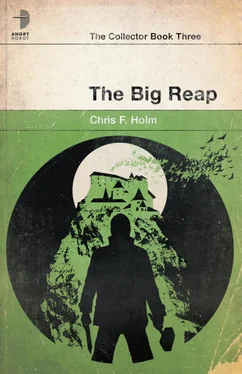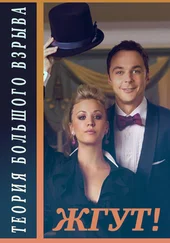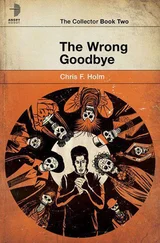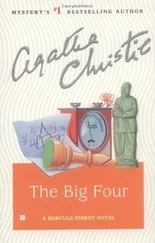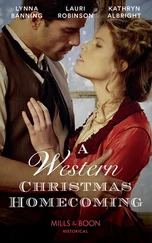“‘Ill-fated first attempt’,” I parroted. “Funny way of saying this guy and his buddies slaughtered the last set of folks hell sent to kill them.”
“I rather thought you wouldn’t like to be reminded of that fact.”
“Yeah, well, it ain’t like I ever forgot. And you buried the lede just now, didn’t you? The fact is, this guy ain’t just my next target, he’s the biggest and baddest of the bunch. Not only that, but he’s helped the remaining Brethren on our list disappear, so for all intents and purposes that makes him our only play.”
Lilith paused a good long while before answering. “You’re not wrong,” she said grudgingly.
“Okay, then, lemme ask you, if he’s the guy who helped the other two fall off your radar, doesn’t that mean the only reason he’s number one on hell’s Most Wanted list is because he fucking volunteered ? Or, put another way, does this look at all to you like one seriously big-ass trap?”
“Possibly,” she said, “but I’m afraid we’ve no other choice. These orders come down from on high.”
“You’ve,” I corrected.
“Excuse me?”
“What you meant was you’ve no other choice.”
Lilith smiled as if she were a teenager caught sneaking a twenty from her pushover dad’s wallet. “I suppose I did, at that.”
“Fan-fucking-tastic. So where’m I headed?”
“That’s the spirit,” Lilith said, clapping me on the shoulder as if I’d responded with great brio and not resigned indifference. “And perhaps your task will prove less unpleasant than you suspect. After all, I understand the Carpathians are quite pleasant this time of year.”
“The Carpathians.” Me, incredulous.
“That’s right.”
“As in Transylvania.”
“Mmm hmm.”
“You’re shitting me.”
“I’ll admit, it’s a tad arch, but I assure you I am not,” said Lilith
“You got an address?”
Lilith paused. “Not exactly.”
“What do you mean, not exactly?”
She sighed. “When we last moved on him, he was at his summer home on the French Riviera, one of seven such homes we’ve routinely monitored over the years. Needless to say, he hasn’t been back since. We’ve always suspected he keeps another abode — home base, perhaps, or safe house — but wherever it is, it’s always been well hidden to our seers. He must have masked it with some kind of occlusion spell, the strongest of its kind I’ve ever seen, in point of fact.”
My mind tracked back to Pemberton Baths, which seemed to go all Teflon beneath my eyeballs’ gaze, and to the cabin of last night, which existed only in the viewfinder of Nicholas-not-Nicky’s camera. “Seems the Brethren are quite fond of those,” I said.
“Yes, well. Our seers had their third eyes on him after the Riviera debacle, tracking his movements eastward across the continent remotely, but then, suddenly, he vanished. Working with our best chronomancers, those seers were able to revisit the moment of his disappearance again and again in their minds, and have narrowed his position down to the twenty-square-mile patch of countryside surrounding Bucura Lake, which is nestled in the southeastern elbow of the Carpathian Mountains.”
“Awesome,” I said. “I can’t tell you how psyched I am at the prospect of traipsing around a whole new batch of cold-ass mountains, looking for the biggest, scariest baddie left on the table.”
“That’s what I like to hear,” she said, and then she left me to continue getting stinking drunk in peace.
The sun was a pale yellow disc in the muted blue of the alpine sky when I piloted my rented Dacia hatchback into the quaint town center, which was really no more than a block-square patch of grass with squat, low-slung buildings huddled around. At one end of the square sat a modest but pretty wooden church, shingled and steep-pitched and obscured in part by scaffolding. A small inn faced it. Its roof was steeply pitched and shingled as well, but its walls were fieldstone, not timber. A couple of the other buildings that flanked the square looked to be businesses of some kind, what with their outsized storefront windows and hand-tooled signs hanging out over the narrow streets, but the signs were all in Romanian, their meaning lost to me.
All told, there couldn’t have been more than two dozen buildings comprising this makeshift town, most on the center square, with some trailing off narrow side streets on either side. And honestly, I’m not sure they had room to build any more; the village was nestled into a depression in the hills so narrow you could scarcely even call it a valley. Sharp stone faces jutted upward, the trees growing ever thinner and more stunted on the upslopes until eventually there was nothing on them but bare rock, gouging free its territory from the sky.
At the very top of the highest peak in sight was a castle.
The ruins of a castle, to be more precise. No mere winter palace, this; everything about it — from its thick stone walls, stained with age and crumbling, to the narrow slit windows that graced its many parapets, to its very position atop the craggy, un-bum-rushable terrain, accessible only by a narrow dirt road that switched back time and again as it wound its way up the mountain — suggested this place was built to be defended, to withstand war.
Or to repel the advances of the angry, torch-and-pitchfork-wielding hordes.
I squinted up at it and wondered how it would fare against me.
If this village — or the castle looking down upon it — had a name, it was neither indicated by sign upon approach nor on any of the road maps that I carried. And these past two weeks, I’d accumulated plenty of them.
After the debacle that was Colorado, I’d decided my days of hitching rides in amateurs were over, at least until the Brethren were dead and gone. If I was going toe-to-toe with the biggest, baddest oogly boogly I’d yet seen, I was for damn sure gonna do it armed, preferably in someone battle-trained. And since I didn’t know precisely where this hunt was gonna take me, I needed a meat-suit with a valid passport, the kind of vessel no one would question if they were to bounce erratically around the map Indiana-Jones style. That ruled out cops (too parochial) and military (who tend to raise hackles when they go AWOL.) Covert ops types are, by nature, hard to come by, and anyways, I hear tell both Langley and the NSA’s headquarters in Fort Meade employ mystical countermeasures to keep out the likes of me. Which is how I settled on an air marshal.
Picked this one up in Chicago. Frank Malmon, according to his passport and the license in his wallet. No pics inside of pets or family, just the ID, two credit cards, and twenty bucks in ones and fives. And no wedding ring on his finger. That’s why I chose him.
The Federal Air Marshals have an office in Chicago, makes them easier to spot than in the wild. Taken in ones and twos, they tend to blend in with their environment — by design, not accident. Their whole point is to look like just another airline customer until the shit goes down. Then you find out they’ve been trained to quick-draw their sidearm and pop a guy head and chest in a people-crammed tin can hurtling through the air thirty thousand feet above the ground at five hundred miles per hour without so much as grazing an innocent passenger or depressurizing the cabin. But in a crowd you know to be rife with them — say, the main concourse in O’Hare — a pattern begins to emerge. Early thirties. Compact build. Hair trimmed high and tight but not too, like a cop’s, or maybe former military. Jeans, polos or button-downs, a windbreaker usually to hide their piece. No bright colors, no garish logos or bold graphics on their clothes. Polite but taciturn when addressed. Always watching, listening, assessing threats.
Читать дальше
